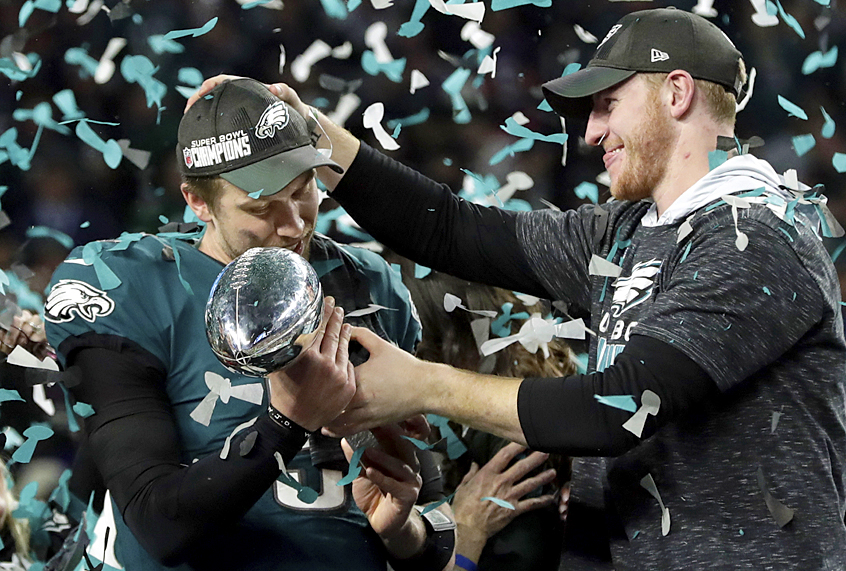Several players for the Philadelphia Eagles, who won Super Bowl LII last night, have indicated they won’t be attending the celebrations at the White House that have become tradition for champions in many major sports, due to their objections over President Donald Trump’s statements, behavior and policies concerning African-Americans. This follows last year’s visit by the then-champions New England Patriots, which saw highly diminished attendance compared to the year before.
When asked if he would attend the celebrations, Eagles safety Malcolm Jenkins told CNN’s “New Day” Monday, “Nah, I personally do not anticipate attending.” Jenkins, who has been critical of Trump in the past, was noted this year for raising his fist during the singing of the “Star Spangled Banner” at an Eagles game. Previously, he had kneeled during the national anthem before games, joining the demonstration first sparked by former NFL quarterback Colin Kaepernick.
Jenkins continued, “My message has been clear all year . . . I’m about, you know, creating positive change in the communities that I come from, whether it be Philadelphia, New Jersey, Ohio, Louisiana or this entire country.” He added, “I want to see changes in our criminal justice system . . . I want to see us push for . . . [economic] and educational advancement in communities of color and low-income communities. And I want to see our relationships between our communities and our law enforcement be advanced.”
Last week, defensive end Chris Long announced his intention to bow out of the festivities well before Sunday’s first snap, telling the hosts of the “Pardon My Take” podcast, “No, I’m not going to the White House . . . Are you kidding me?” As a member of the Patriots last year, Long also skipped the team’s 2017 visit to the White House. Similarly, Eagles running back LeGarrette Blount, a Patriots player at the time, chose not to attend the White House gathering last year, though he has not yet indicated whether he will make the upcoming team trip.
During the pre-game media junket last week, wide receiver Torrey Smith also announced his intention to not attend the celebrations, should his team win the Super Bowl. “We read the news just like everyone else,” Smith said. “You see Donald Trump tweet something . . . We have those conversations in the locker room, just like everyone else does in the workplace. We’re very informed about what goes on, and we’re trying to continue to educate ourselves. It’s pretty special to have a group like that of folks that aren’t just socially conscious, but folks who genuinely care about people and care about learning more.”
All of this follows a year in which Trump constantly and consistently criticized NFL players for kneeling during the singing of the national anthem before league games. During a September rally, the president told the crowd, “Wouldn’t you love to see one of these NFL owners, when somebody disrespects our flag, to say, ‘Get that son of a bitch off the field right now. Out! He’s fired. He’s fired!'” This comes on top of multiple tweets and statements elsewhere, all in a similar vein, and all of them casting the demonstrations as insults to the flag or America’s military service members.
In recent weeks, Trump has somewhat tempered this approach, asking people to stand during the anthem in what is certainly a reference to the protests, but not a fiery indictment of those who kneel. In some senses, he may have won that particular battle, as no players knelt during the singing of the national anthem before the Super Bowl on Sunday.
It’s unclear how Trump’s team will react to the news, though it is worth noting that the administration saw fit to disinvite 2017’s NBA champions, the Golden State Warriors, following statements by several key players indicating that they would skip a similar function at the White House.


